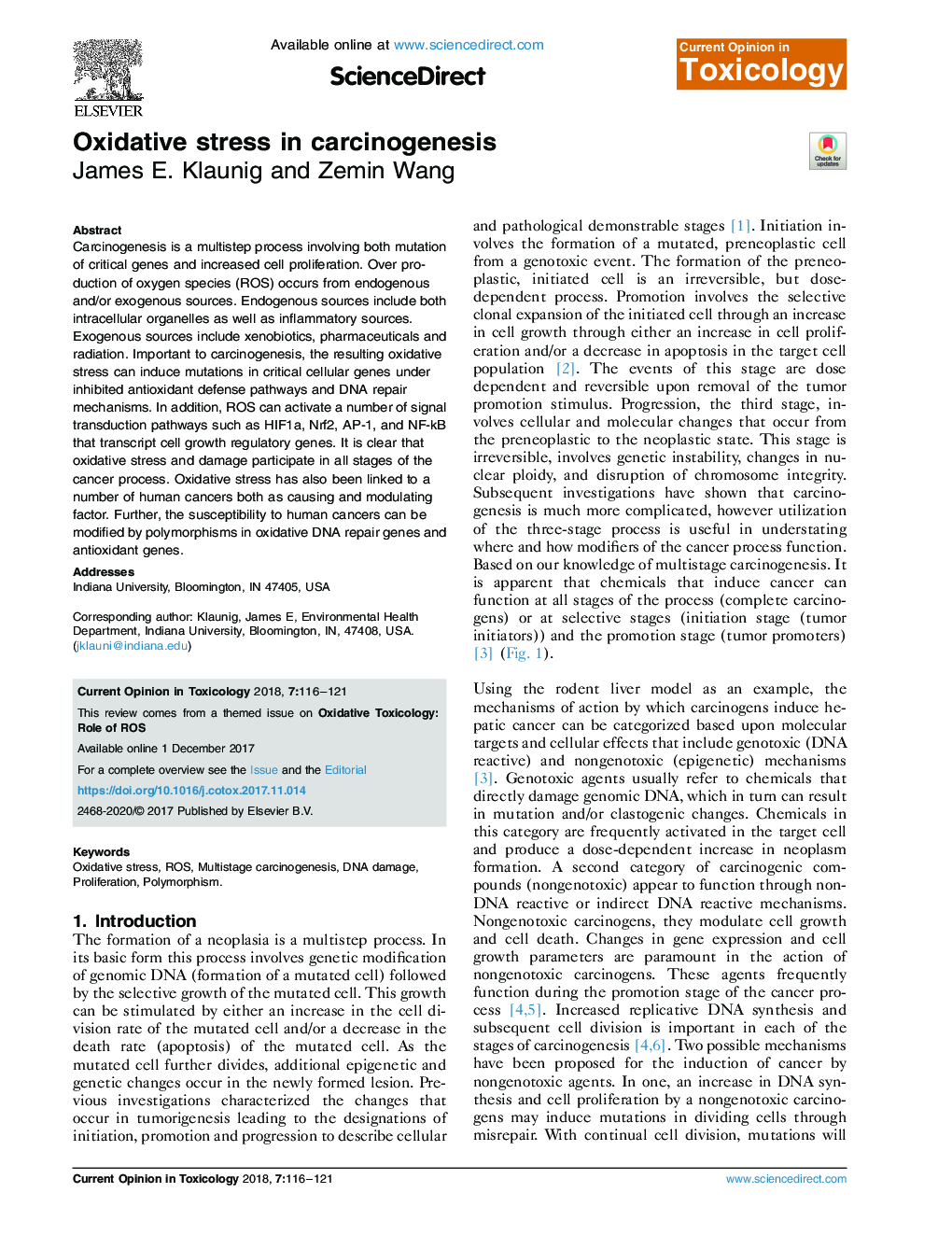| Article ID | Journal | Published Year | Pages | File Type |
|---|---|---|---|---|
| 8920221 | Current Opinion in Toxicology | 2018 | 6 Pages |
Abstract
Carcinogenesis is a multistep process involving both mutation of critical genes and increased cell proliferation. Over production of oxygen species (ROS) occurs from endogenous and/or exogenous sources. Endogenous sources include both intracellular organelles as well as inflammatory sources. Exogenous sources include xenobiotics, pharmaceuticals and radiation. Important to carcinogenesis, the resulting oxidative stress can induce mutations in critical cellular genes under inhibited antioxidant defense pathways and DNA repair mechanisms. In addition, ROS can activate a number of signal transduction pathways such as HIF1a, Nrf2, AP-1, and NF-kB that transcript cell growth regulatory genes. It is clear that oxidative stress and damage participate in all stages of the cancer process. Oxidative stress has also been linked to a number of human cancers both as causing and modulating factor. Further, the susceptibility to human cancers can be modified by polymorphisms in oxidative DNA repair genes and antioxidant genes.
Related Topics
Life Sciences
Biochemistry, Genetics and Molecular Biology
Biochemistry
Authors
James E. Klaunig, Zemin Wang,
